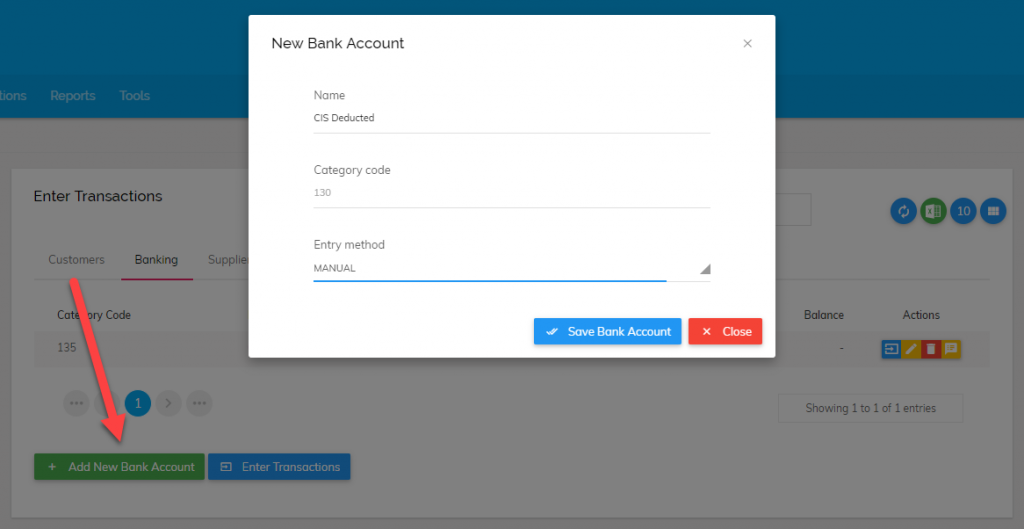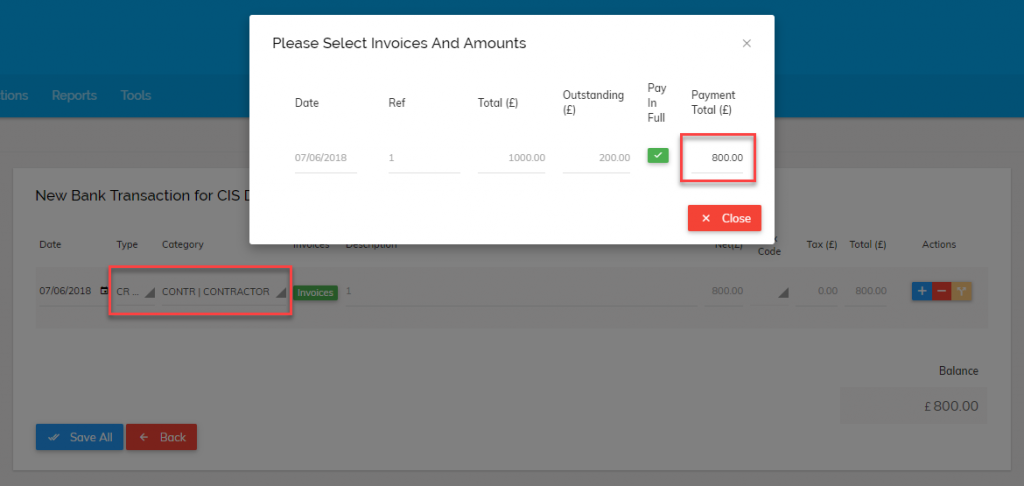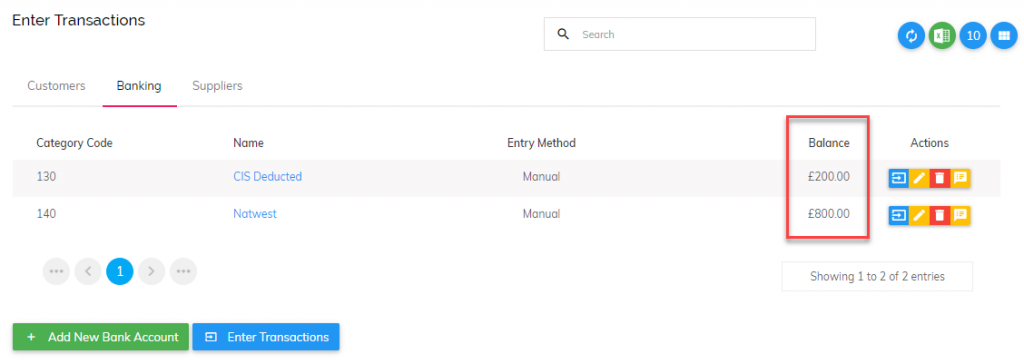CIS in Quant
What is CIS?
CIS stands for the Construction Industry Scheme and is a deduction from sub-contractors in the construction industry. This deduction is sent to HMRC by the contractor and reduces the amount of tax the sub-contractor pays at the end of the year.
If CIS deductions apply to you, you’ll need to amend your bookkeeping to reflect this. Here’s a run-down on how to do this in Quant.
Showing CIS in Quant
While Quant does not have a specific CIS function (this is currently under development), we do still have a simple way to set up CIS. Let’s take an example of a £1,000 invoice you have created, which has £200 CIS tax deducted by your contractor.
1. Create your invoice as normal in Quant, i.e. for the full £1,000
2. Create a new bank account called ‘CIS Deducted’ or similar name

3. When you receive the £800 into your business bank account, process this amount as a customer receipt as normal

4. This leaves £200 outstanding on the invoice, which is the CIS tax deducted. You will then need to enter another customer receipt through the new ‘CIS Deducted’ bank account for the remaining amount. This will leave you with the correct bank balance and a balance of £200 for the CIS deducted as follows:

5. Over time the CIS deducted account will build up and should reflect the total amount of CIS that has been deducted from you. After your year end, depending on the business entity you have, you can check the balance is correct and reduce it as follows:
If you’re a sole trader
Process a money out transaction from the ‘CIS Deducted’ bank account, dated on your year-end for the full amount. Categorise this transaction as ‘Drawings’.
If you have a limited company
If your CIS tax is refunded each year, when processing the money into your business bank account, select the ‘CIS Deducted’ bank account as the category to reduce the balance owed to you.
If you offset the CIS deducted against your PAYE bill to HMRC you can simply include an additional line in your wages adjustments to show the reduced liability. You may want to ask your accountant for help with this.
